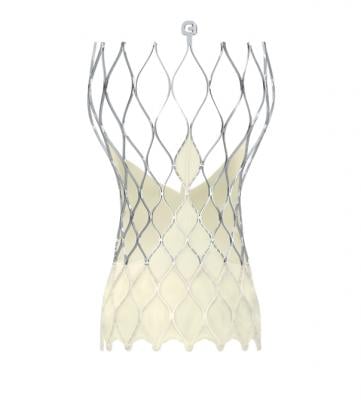
May 8, 2019 — Transcatheter aortic valve replacement (TAVR) has been studied as an alternative to surgical aortic valve replacement in high and intermediate-risk surgical patients for more than five years. A new clinical trial, one of two studies on the topic presented at the American Association for Thoracic Surgery’s 99th Annual Meeting, May 4-7 in Toronto, finds the procedure to be equivalent or potentially preferable to surgical aortic valve replacement (SAVR) for low-risk patients.
The international, multicenter, clinical trial enrolled more than 1,400 patients with severe aortic stenosis at low risk for surgical mortality, as determined by local multidisciplinary heart team assessment. Patients were randomized 1:1 to surgery with an aortic valve of the surgeon’s choice or TAVR with a supra-annular self-expanding valve. Endpoints included death from any cause or disabling stroke at 24 months, as well as quality of life and functional recovery at 30 days. Time from procedure to discharge was also measured.
Periprocedural outcomes for both SAVR and TAVR patient categories were equivalently positive, with strong post-procedure benefits for TAVR patients. Of the patients in the study treated with TAVR, only 1 percent were performed through non-femoral access in the groin. TAVR patients also had fewer re-hospitalizations. Also, TAVR had improved quality of life metrics at 30 days, as did sternal-sparing SAVR, compared to traditional sternotomy SAVR.
According to lead author Basel Ramlawi, M.D., chairman and cardiothoracic surgeon, Heart & Vascular Center at Valley Health, “Anytime you have an equivalent safety and efficacy for a less invasive procedure, the benefits to patients in terms of recovery are superior. For self-expanding TAVR, outcomes were superior to SAVR for many endpoints. With fairly rapid improvements in TAVR technology, we can expect to continue to see improvements in outcomes for patients as the technology matures.”
For more information: www.aats.org


 January 05, 2026
January 05, 2026 









